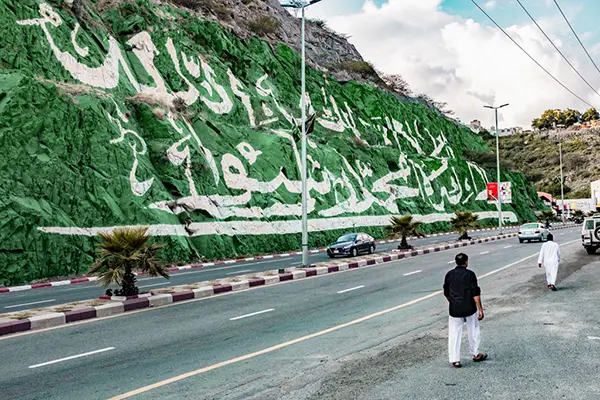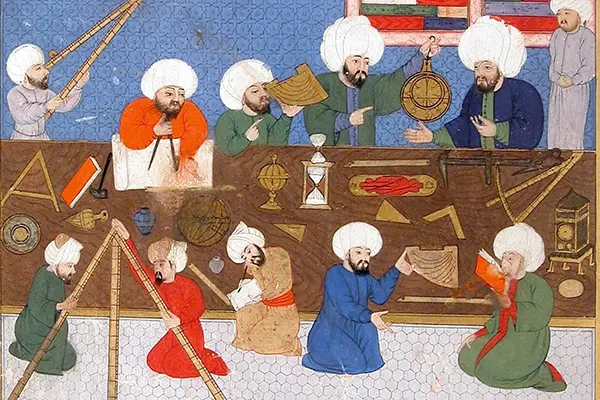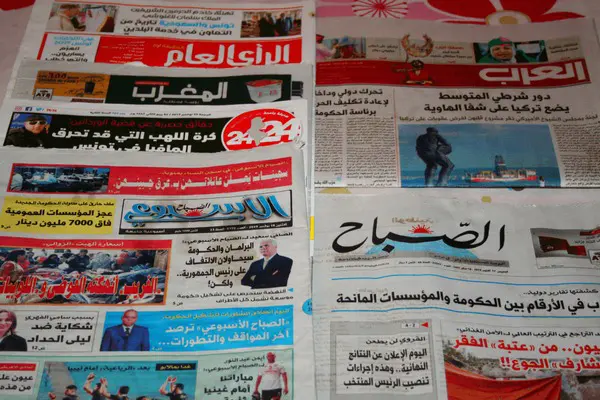Major in Middle East and North African Studies
Middle East and North African Studies (MENA) trains students to develop critical and analytical thinking on the Middle East and the Maghreb through an interdisciplinary, transnational approach. The MENA major draws on a number of departments and programs across Tulane’s School of Liberal Arts to offer a wide array of courses introducing students to the rich history, layered politics, diverse cultures, linguistic, and religious traditions of a complex region. This background enables students to transcend simplistic generalizations and stereotypes about the region and its people while promoting students’ global literacy in an increasingly interconnected world. The MENA major prepares students to pursue careers in government, policy, trade, research, and a variety of other fields.
Course Requirements
Students must complete at least ten courses (30 credits minimum) from an approved list of Middle East-related courses. These ten courses must be distributed as follows:
Core Courses.
Students must take the following three courses: 1
- HISM 2200 History of Islam to 1400
- HISM 2210 History of Modern Middle East, 1750 to Present
- JWST 3220 Arab-Israeli Conflict or POLI 4670 Politics of Arab-Israeli Conflict or HISM 3220 Arab-Israeli Conflict (Methods). POLI 3550 Conflict Mgmt in Arab-Israeli may be substituted.
Students also must take one of the following two courses:
- POLC 3340 Middle East Comparative Politics or
- POLI 4660 Middle East Security
Language Courses 2
Students must take at least one course in Arabic beyond ARBC 2030 Intermediate Arabic (normally, ARBC 3150) or at least one course in Hebrew beyond HBRW 2030 Intermediate Hebrew I (normally, HBRW 2130 Intermediate Hebrew II).
Electives
Students must select at least five elective courses from the approved electives list. Additional electives may be added with permission of the Program Director. These must be advanced content courses, at least one of which must be at the 4000 or 6000 level.
Notes on Course Requirements.
- At least half of the required courses must be taken in residence at Tulane.
- Students are encouraged to study abroad. Courses taken while studying abroad may count toward the above requirements, with permission of the Program Director. Tulane offers various study-abroad programs in Israel, Jordan, and Morocco, each offering a wide range of suitable courses. In addition, students can petition to study abroad in a non-Tulane program that may offer suitable courses.
- Courses taken through the Mandel-Palagye Program for Middle East Peace (https://liberalarts.tulane.edu/academics/undergraduate-studies/summer-program-middle-east) can count toward the ten-course requirement.
1 HISM 2200 and HISM 2210 are offered at least once every other year. They must be taken in the first semester that they are offered after the student enters the program.
2 Students who demonstrate proficiency in Arabic, Hebrew, Turkish, or Persian language in a suitable manner can substitute another Middle East-related course from the approved list for this requirement. Turkish and Persian are not offered at Tulane.
Arabic Studies Minor at Tulane
Standard Arabic has an estimated 206 million speakers, while colloquial Arabic is spoken by a total of over 400 million, which makes it the fifth most widely spoken language in the world. Arabic classes at Tulane highlight the richness of Arabic culture and literature, as well as its practical applications in the global political economy.
Minor Requirements
The Arabic minor consists of 5 courses for a minimum of 15 credits, distributed as follows:
Two core courses:
- ARBC 2030: Intermediate Arabic*
- ARBC 3150: Advanced Arabic
Three electives from the following list:
- ARBC 3060: Business Arabic
- ARBC 3170: Media Arabic
- ARBC 3220: Introduction to Arabic Literature
- ARBC 3250: Arab Modern Culture
- ARBC 3300: Arabic for International Relations and Diplomacy
If a student wishes to complete two or more minors, no courses counting toward the student’s one minor will count toward the student’s other minor(s). Courses taken abroad that the student wishes to count toward the Arabic minor will be evaluated on a case-by-case basis.
*ARBC 2030 will count toward the minor provided students do not use it to fulfill the SLA language requirement. If students wish to count 2030 toward the SLA language requirement, they will need to take 5 courses beyond 2030.
MENA courses at Tulane
Complete Course list for Middle East & North African Studies and Arabic
Featured Middle East and North African Studies Courses

POLC-3340 Middle East Comparative Politics
Professor Andrew Leber aleber@tulane.edu
Middle East Comparative Politics offers a broad introduction to political dynamics in the Middle East and North Africa (also known as South-West Asia & North Africa, and a number of other names) as well as a range of political-science concepts and theories. Over the course of the semester, we examine the role of religious identities and state failure in driving civil wars, varieties of the region's authoritarian regimes and how they respond to major protests, and the role of elections and ideologies in helping kings and dictators retain power. This course also provides an opportunity for students to learn about data sources and research skills related to studying the politics of the region.

HISM-2200 The Pre-Modern Islamic World
Professor Idun Strand S Hauge ihauge@tulane.edu
The American media today gives their audience the impression of a stagnant Middle East marred by violence, sectarianism, extremism and narrow-mindedness. Hollywood productions portray Arab men as irrational terrorists and Arab women as perpetual victims. But do these depictions of the region and its peoples hold up to academic scrutiny? Challenging such Orientalist rhetoric, this class will explore the rich pre-modern history of the region and the agency, views and experiences of the peoples of the Middle East. We will hear from diverse voices, explore topics ranging from novel scientific discoveries to the political power of concubines, and approach the region with empathy, seeking to understand its complex and consequential history.
This course covers the birth of Islam in 7th-century Arabia until the mid-18th century Ottoman Empire. It focuses on the most consequential empires within the Islamic World and their political history. Additionally, we will explore the social, cultural and gender history of the region. Students will interact with voices and sources from our period of study and will be encouraged to approach sources with empathy and curiosity in order to explore views and opinions from the past. The class is structured chronologically, typically covering an empire per week. As any other history class, lectures, discussions, group work and assignments will challenge you to think about the past not in terms of binaries (tradition vs. modernity; truth vs. lie; power vs. powerlessness; men vs. women; conservative vs. progressive) or as a linear, inevitable road to “progress,” but rather as complex, sometimes contradictory, and often surprising to our 21st-century eyes and sensibilities.

ARBC-3170 Media Arabic
Professor Khedidja Boudaba kboudaba@tulane.edu
This course has a twofold objective: enable students to explore topics on Modern Arab journalism and introduce them to media Arabic and the core vocabulary and structures typical of news stories. Students will learn to recognize various modes of coverage, distinguish fact from opinion, detect bias, and read news critically in Arabic. The course includes meaningful student-content interactions and student-student and students -instructor interactions.
Course materials:
- Arabic coursebook for reading Arabic news
- The Top 1,300 Words for Understanding Media Arabic
- Selected chapters from Noha Mellor’s Modern Arab Journalism.
Links to the Arabic program at Tulane University:
Tulane New Wave
Higher Education Tribune
Tulane Hullabaloo
For more information, please contact:
Fayçal Falaky, ffalaky@tulane.edu

